 Iran’s Attack on Israel
Iran’s Attack on Israel
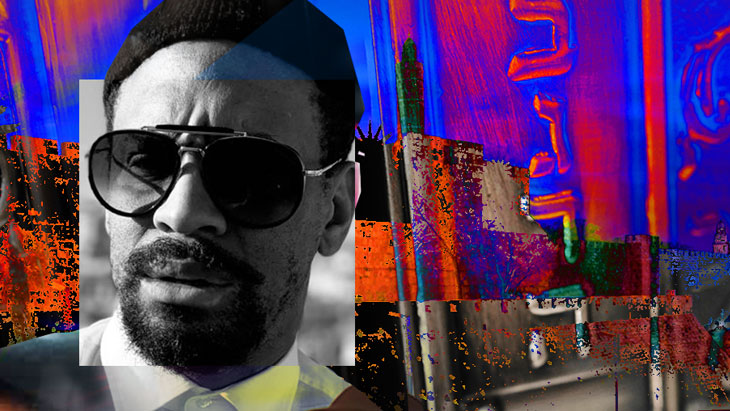

13 min read
An Aish.com exclusive interview with the multi-faceted rapper Zecharya Yishai Dovid Levine.
Rapper. Football star. Lawyer. Businessman. African-American. Observant Jew.
Zecharya Yishai Dovid Levine is a polymath who defies labeling.
Zecharya, age 37, wears a kippah and tzitzit, studies Torah and prays every day. He is also taking the Jewish music scene by storm with a prodigious output of Jewish-themed rap music under the moniker L’Chaim OG (Original Geshmacht).
Zecharya’s story begins in North Minneapolis, once the city’s main Jewish neighborhood and now deep inner city. “I grew up with chaos in the streets, feeling the energy and the frustration of the people,” he says. “We called it ‘Murder-apolis,’ with death in the air and a minimal margin of error. Instead of city, we called it 'chitty' because of the constant 'bang-bang'.”
Zecharya’s father, Alfred Babington-Johnson, is a popular reverend who built a network of African-American churches, and an entrepreneur who devoted his life to creating opportunities for the inner city.
Zecharya grew up immersed in the church community, preaching at age 4 and learning from an early age the power of words. “If I wasn’t in school, I was at church for prayer, or bible study, or choir rehearsal. Always fired up and spiritual, open about my love for God. I’d sit in church and say, ‘God, when I grow up, I want to read Hebrew and be a superhero like Abraham and Moses’.”
Zecharya had early challenges. At age 16 months, he contracted retinoblastoma cancer. The doctor misdiagnosed it and Zecharya almost died. He lost one eye, subjecting him to the taunts of other kids. “Growing up, I spent a lot of time defending myself and standing up for myself,” he says.
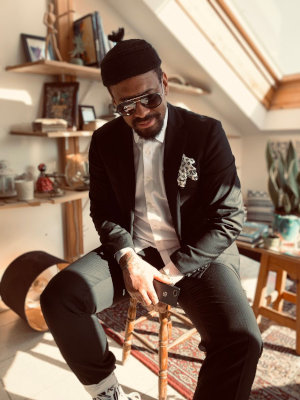
Zecharya’s raw anger found its outlet on the football field. “I got to hit people for free. I’d make a list of people who offended me and tape it to my wrist – then go on the field and collect.”
Zecharya was big, fast, and aggressive – scoring touchdowns and delivering crushing hits as a linebacker. Never to wallow in self-pity at having one eye, he adjusted to the lack of peripheral vision by plowing straight ahead with focused intent.
“On the football field, I was always in motion, taking things head-on and giving the situation more than what it asks for.”
In high school, he played on an illustrious state championship team. Nine of his teammates went on to play professionally.
Zecharya received scholarship offers and chose the University of North Dakota. “It was close enough to home, but far from the inner city where I might get caught up in negative things. If you’re hanging around with people without the same urgency and sacrifice, you won’t make it.”
Additionally, North Dakota offered Zecharya a particular ethnic mix. “I’d been kicked out of a high school that was predominantly European-descent,” Zecharya says, using a euphemism for “white.” “I wanted to prove that I can thrive in an environment where I'm not surrounded by others like me.”
In college, Zecharya shined on the field, entering the record book for sacks. Speculation swirled of a professional career. Yet in his senior year he was hit with cheap-shot from behind that fractured his fibula and ended his career. Zecharya says that was a moment of "everything happens for a reason. I look back and see how it might have kept me out of other trouble. Avoiding calamities is a fair trade-off.”
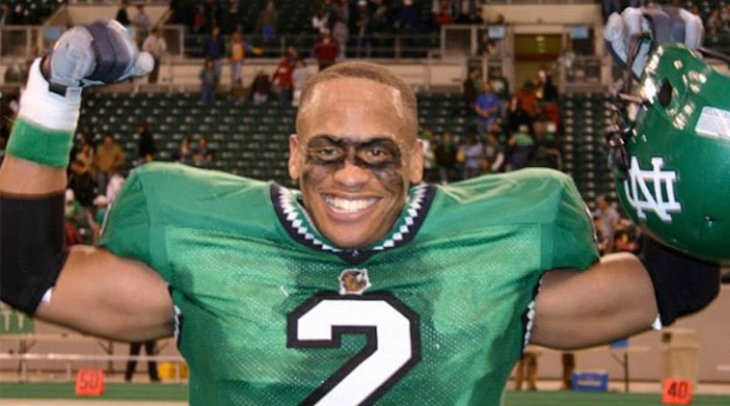 Zecharya as a star linebacker at University of North Dakota.
Zecharya as a star linebacker at University of North Dakota.
For the first time in years, Zecharya was no longer solely focused on football. He stayed in North Dakota for law and business school, and the spiritual search began to take center stage.
One Friday afternoon in Minneapolis, he stopped to fill his gas tank to drive back to North Dakota.
“My credit card wouldn't work, so I asked God, ‘My plan’s not working. Is there something You would like instead?’” Zecharya heard the words, “Get in the car and I’ll direct you.” After driving a few minutes, he encountered a food truck. “I'd been thinking about getting into the food truck business. God directed me to a food truck. A major moment!”
Zecharya grabbed a notebook, got out of the car, and went to speak with the food truck operator.
It turned out to be a complete waste of time. “I’m standing there wondering whether I need clinical help because I’m listening to voices and driving in circles for no reason. So I said, ‘God, if you're making fun of me, I don't have the time, nor the gas’.”
Again he heard the words, “Get in the car and I’ll direct you.”
Zecharya next found himself in St. Louis Park, the predominately Jewish suburb of Minneapolis. He spotted people in black suits walking on the street. He stopped the car, double-parked in the middle of the street and went in to check out a certain nondescript building, curious as to why it would be open on a Friday evening.
The rabbi was giving a class before Shabbat. Somebody put a kippa on Zecharya’s head.
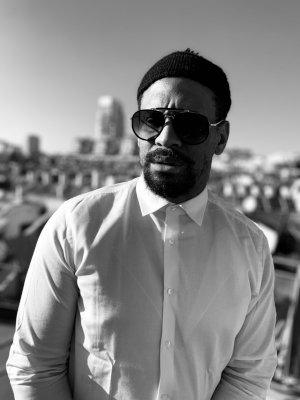
“After the class, the guy next to me starts explaining how we say blessings before we eat because even a hungry dog is thankful. But we also say a blessing after eating, a much higher level of appreciation. I was like, wow, that's powerful. Then he starts talking about how we don't watch certain media, to guard our eyes from things that damage our soul. I'm like wow, so powerful. Then he tells me that we don't eat to get full, but just enough to keep our strength going. And I’m like, ‘You lost me on that one, bro. But two-out-of-three still advances you to the next round’.”
Zecharya stayed for Kabbalat Shabbat and noticed an ArtScroll Chumash, the Bible containing the Five Books of Moses, on the bookshelf. He’d read the Bible many times but was always bothered by superficial explanations, or worse, the attempt to explain biblical ideas without authentic sources. He opened the Chumash and immediately knew this was different. “I see all these footnotes and explanations, and I'm like: This is what I've always been looking for!”
After services, Zecharya got the rabbi’s permission to borrow the Chumash. Back home, he began on page one and stayed up the entire night, reading cover-to-cover. “I saw there’s much more to the Bible than what we grew up with.”
The next day, Zecharya was at a cousin’s wedding. He turned around to see an African-American man wearing a kippa and star of David necklace, looking straight at him. “My first instinct was that the shul sent this guy after me for taking the book,” Zecharya recalls.
“What’s with the kippa and necklace?” Zecharya asked.
“Our family migrated from Israel down into west Africa,” said the man, introducing himself as Uncle Yosef. “We're Jews.”
Zecharya was floored. “No one knows that I spent the day at an Orthodox shul. Now I bump into a Jewish relative?!”
Yosef gave Zecharya a list of Psalms, with instructions to read them facing northeast when the sun comes up.
The next day, Zecharya woke up, got out his compass, and faced northeast. That was the beginning of a few years “stuck in North Dakota with only my Chumash and Google.” Zecharya read the Amidah which speaks about beating back the enemy. “I liked this kind of talk,” he says. “It’s not ‘turn the cheek’ like they say in church. This is real talk.”
Before long, Zecharya had people around him saying “Baruch Hashem,” and he’d recite blessings before eating. “I’d say all these blessings – Hamotzi, Ha’aitz, Ha’adama, Shehakol – then drink a glass of water. I didn’t know much, but I was committed to the process. I laid it all on the line.”
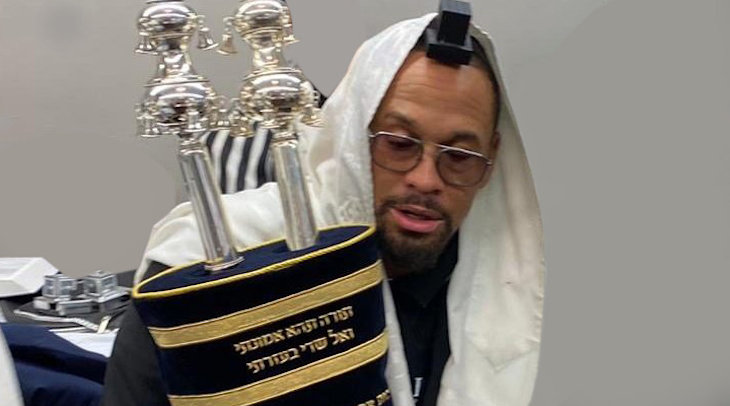 Zecharya’s prayer when holding the Torah: “God, let the Torah be rooted in my soul and rest in my heart.”
Zecharya’s prayer when holding the Torah: “God, let the Torah be rooted in my soul and rest in my heart.”
After graduating law and business school, Zecharya returned to Minneapolis. One Shabbat morning he showed up at a synagogue just as services were ending. “At that moment, the doors opened to a social hall, revealing a banquet with steam trays down the middle, wine, pizza, pasta. Free lunch? I'm here!”
Zecharya moved forward in observance, step by step, and before long was wearing a kippa and tzitzit, and eating kosher. Eventually he landed at Congregation Bais Yisroel, “an amazing community that embraced me with a lot of love.”
Zecharya began been working with a Beit Din (rabbinic court) for conversion. “I'm going to move to Israel and learn in yeshiva,” he told them. “As long as your plan aligns with that, I'm your guy. If not, don’t waste your time, because I'm not going to listen to you.”
He now realizes, “That was not a great way to talk to the Beis Din.”
In Israel, Zecharya connected with Rabbi Barry Klein of "The Chabura" in Mea She’arim, who became his rabbi and sent Zecharya to Ohr Somayach in Jerusalem where he studied for two years. “God sent me angels to look after me and guide me along a path that allows me to continue to grow,” he says.
Zecharya helped gain admission for two other African-American converts: six-time NBA All-Star Amar’e Stoudemire (AKA Yehoshafat) and rap sensation Nissim Black. “I've always been a community guy, so I pulled together aspiring Jews of color to connect and support each other and learn together. It’s dope to have people with a similar hunger for Torah and a similar background. Culturally, we understand each other.”
Zecharya describes that time at Ohr Somayach as a “sensation where the yeshiva cafeteria at lunchtime was packed with people hoping to see me, Amar’e and Nissim, clamoring to snap a picture.”
In 2019, Zecharya immersed in a mikveh and became a Jew at the prestigious Beit Din of Rabbi Nissim Karelitz in Bnei Brak.
After the conversion, he changed his last name. “I wanted to go with ‘L’Chaim,’ but my rabbi said that no rebbetzin will let any of her gals marry a guy with the name L’Chaim. He suggested ‘Levine’ and I understood that the Levites were very musical. I figured that's an alley-oop from Hashem. Maybe when Moshaich comes I’ll discover I’m originally a Levite.”
Born and raised as "Zecharya Yishai," he added the name "Dovid" one day at the Western Wall when getting called up for an aliyah. "King David is my number one guy. Because of his journey. Questions about his lineage. Living on the outskirts. He took everything in love and wrote songs praising Hashem. That's where I vibrate – expressing my gratitude to God with joy and enthusiasm."
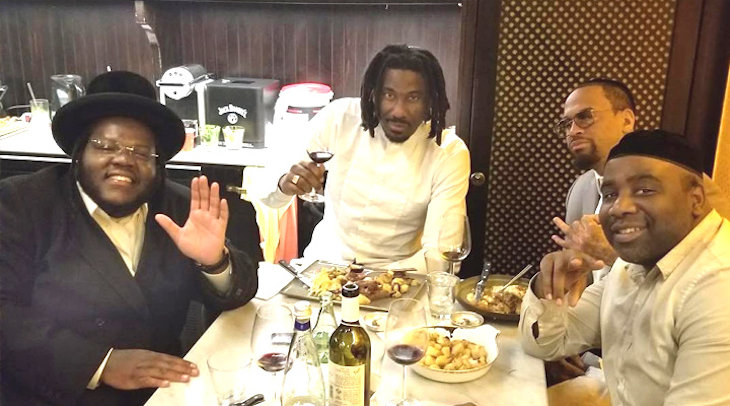 (L-R) Nissim Black, Amar‘e Stoudemire, Zecharya Levine, and Mordechai Yosef Ben Avraham.
(L-R) Nissim Black, Amar‘e Stoudemire, Zecharya Levine, and Mordechai Yosef Ben Avraham.
Zecharya grew up with a deep musical tradition, in the shadow of Minneapolis musical legends. The pop superstar Prince was his mother's first cousin. “I was around musical titans. You really see the work ethic and humility. ‘Average’ is not good enough. You become a product of the air you breathe.”
From an early age, Zecharya played drums and cello, later joining the Twin City Orchestra.
“I was always talking a lot and eventually started rapping. I went into the studio at age 13 and after that, people knew me as the best freestyler in the state. Say any word and I can make it rhyme on the spot.”
Today, in his persona as “L’Chaim OG,” Zecharya hit the market with his first Torah-themed rap album, “What’s the Hechsher?” He explains the connotation:
“One thing you learn from law practice is to lead with the most difficult question first, to get the jury on your side. When a brother walks into shul, the first thing they ask is ‘What's the hechsher?’ – how kosher was your conversion? A hechsher shows that a process has been verified and checked.”
The debut album was followed in rapid succession by “Kiss the Mezuzah” and “Cholov Yisroel Feta Cheese.” Zecharya’s next album, “Jerusalem Jollof,” is ready to go. "The streets have been anxious,” he says. "Plus another 40 songs are in the bag.”
Zecharya sees his music as bringing Torah values to a wider audience. “You see the impact that music has culturally, even glorifying violence. Why can't I take this same fervor and style to make Torah cool? Why can't I bang for Hashem? There is nothing more pure than Torah. It’s the infinite highway. Why is being righteous not the coolest thing in the world?”
Zecharya believes it’s all a matter of perception.
“Judaism has been poorly marketed and poorly placed in the religious section. Judaism is not a religion. It’s a relationship with God. We speak with God when we wake up, checking in day and night. You have a direct line to the Boss. Every time Hashem drops a voicemail or sends a text message, it almost brings me to tears, it’s so worth it. When you love someone, it doesn't matter how long you go without speaking to them. When you hear from them, you're like ahhh, wow, it's so good to speak to you again.”
Zecharya hopes to appeal to those finding their way to Judaism. “This isn't entertainment. It's not a costume. It's all connecting to God. Many people are lost, like spiritual free agents. My main point is to encourage other Jews on their journey toward Torah.”
Zecharya’s career is ramping up, with increasingly greater name recognition. “I was walking in Waterbury, Connecticut and this 7-year-old starts staring at me. He says, ‘Hey, are you a musician?’ I'm like, oh no, here we go again. I'm not Nissim Black! The kid says, ‘Are you L'Chaim OG? I love your music!’”
Does Zecharya worry that his message may be too blunt?
“I've taken a lot of grief for choosing this path. Even musically and expression-wise, a lot of people are like, ‘What are you doing that for?’ For the people this resonates with, they need what I got. My only choice is to give.”
He continues:
A Jew should live in a way that makes people say, ‘Hey, how do I get me some of that!?’
“A Jew shouldn’t proselytize, because what good is a guy walking around saying how holy and righteous he is? A Jew should live in a way that makes people say, ‘Hey, how do I get me some of that!?’ Some Jewish kids are thinking, ‘I bet it's cooler on the other side.’ Then they hear the music and they're like, ‘Oh, apparently this is the cool place to be’.”
What does the future hold for Zecharya?
“My dream life is Torah study. I get almost in tears going through Mishnah and Gemara. I want to know more and more. I would like to spend the rest of my life figuring out the what's and the why's. That's tantalizing to me.”
Zecharya is currently single, but active in dating. “There's always something cooking on the blech,” he says. “Hopefully soon I’ll be dancing at the chuppah and fulfilling the mitzvah to be fruitful and multiply. It's all in Hashem's timing.”
Sample Zecharya’s music here.
